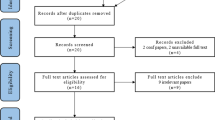Abstract
Neoclassic theory assumes that individuals solely strive for maximization of their utility function reflecting their respective preferences. Thus, decision makers will only consider costs and bene.ts which have an impact on their individual utility function. Therefore, if an individual’s action affects the utility of another party without impact on one’s own well-being, this impact will not be taken into account. Effects like this (i.e. positive and negative external effects or externalities) can not only prevent an economic agent from investing in such a good, but can also lead to over investment. For example, in case of positive externalities, the profit seeking agent does not receive compensation for the benefits she bestows on other parties; therefore, she will not invest sufficiently into these activities. This may result in inefficient markets for this kind of goods.
Access this chapter
Tax calculation will be finalised at checkout
Purchases are for personal use only
Preview
Unable to display preview. Download preview PDF.
Similar content being viewed by others
Author information
Authors and Affiliations
Editor information
Editors and Affiliations
Rights and permissions
Copyright information
© 2003 Springer-Verlag Berlin Heidelberg
About this chapter
Cite this chapter
Picot, A., Fiedler, M. (2003). Impacts of DRM on Internet Based Innovation. In: Becker, E., Buhse, W., Günnewig, D., Rump, N. (eds) Digital Rights Management. Lecture Notes in Computer Science, vol 2770. Springer, Berlin, Heidelberg. https://doi.org/10.1007/10941270_19
Download citation
DOI: https://doi.org/10.1007/10941270_19
Publisher Name: Springer, Berlin, Heidelberg
Print ISBN: 978-3-540-40465-1
Online ISBN: 978-3-540-45038-2
eBook Packages: Springer Book Archive




